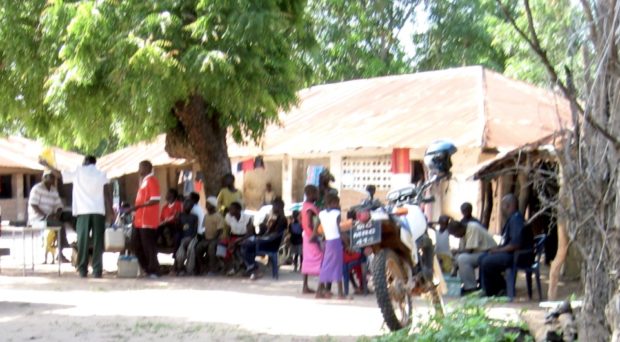
About a decade ago, I recall sitting under a tree in a rural West African village having a long swab inserted into my nose to the delight of giggling children. We were conducting research on atypical bacteria living in the nose to measure the impact of a recently introduced vaccine, and I was demonstrating that nasopharyngeal swabs are not so bad after all.
What impressed me that day was not only the keen participation and knowledge of the community in our project, but the integrated approach shown by the local team in charge of mobilizing the community.
The inclusion for the first time of the target to “end the epidemic of the Neglected Tropical Diseases (NTDs) by 2030” has energized the NTD community.
While we were collecting nasal swabs, others were inspecting the water and sanitation facilities, discussing maternity issues, addressing various ailments and engaging with village elders.
Returning to the laboratory with our samples, I noted that although the purpose of our visit was to search for bacteria in noses, the impact on this community went beyond our research.
As we transition from the Millennium Development Goals to the Sustainable Development Goals (SDGs), this integrated approach has become more important than ever. We are facing ambitious SDGs, broken down into 17 goals, 169 targets and 230 indicators.
The inclusion for the first time of the target to “end the epidemic of the Neglected Tropical Diseases (NTDs) by 2030” has energized the NTD community which has been fighting for decades to protect the most marginalized populations and leave no one behind.
The NTDs are a diverse group of viruses, bacteria and parasites that infect hard-to-reach or impoverished populations. While generally not deadly, infections can physically or mentally incapacitate individuals and the global burden is staggering: a recent WHO statistic shows more than 1 billion people are affected worldwide.
In a scoping review published in the Infectious Diseases of Poverty, we look at the interventions that have been leveraged against the NTDs and show how these can contribute to achieving the 17 SDGs.
Take deworming, for example, the process where school-aged children are given essential medicines to rid their body of parasites. While the intervention is aimed at clearing an infection, the impact beyond this is noteworthy. Uninfected children learn better, eat better and contribute more to the economy later in life, when compared to their infected compatriots.
Uninfected children learn better, eat better and contribute more to the economy later in life, when compared to their infected compatriots.
Indirect effects are equally important. Countries have improved their national transport and storage infrastructure to safely receive and distribute large amounts of deworming medicines donated through international partnerships. In 2015 alone, more than 1,600 tonnes were delivered through the WHO to more than 100 endemic countries.
Deworming therefore contributes to the goals of health (SDG3), education (SDG4), poverty (SDG1), economic prosperity (SDG8), infrastructure (SDG9) and partnerships (SDG17), as well as the provision of clean water and sanitation (SDG6), which is an integral part of all NTD interventions.
The NTD community should continue to embrace this integration and be proactive in working across sectors to leverage the impact their interventions have beyond their intended target. Crucially, these “off-target” effects should be monitored and highlighted to encourage further collaboration, and show that the end of the NTDs is the start of the SDGs.
The author alone is responsible for the views expressed in this article and they do not necessarily represent the decisions or policies of the World Health Organization.
Comments